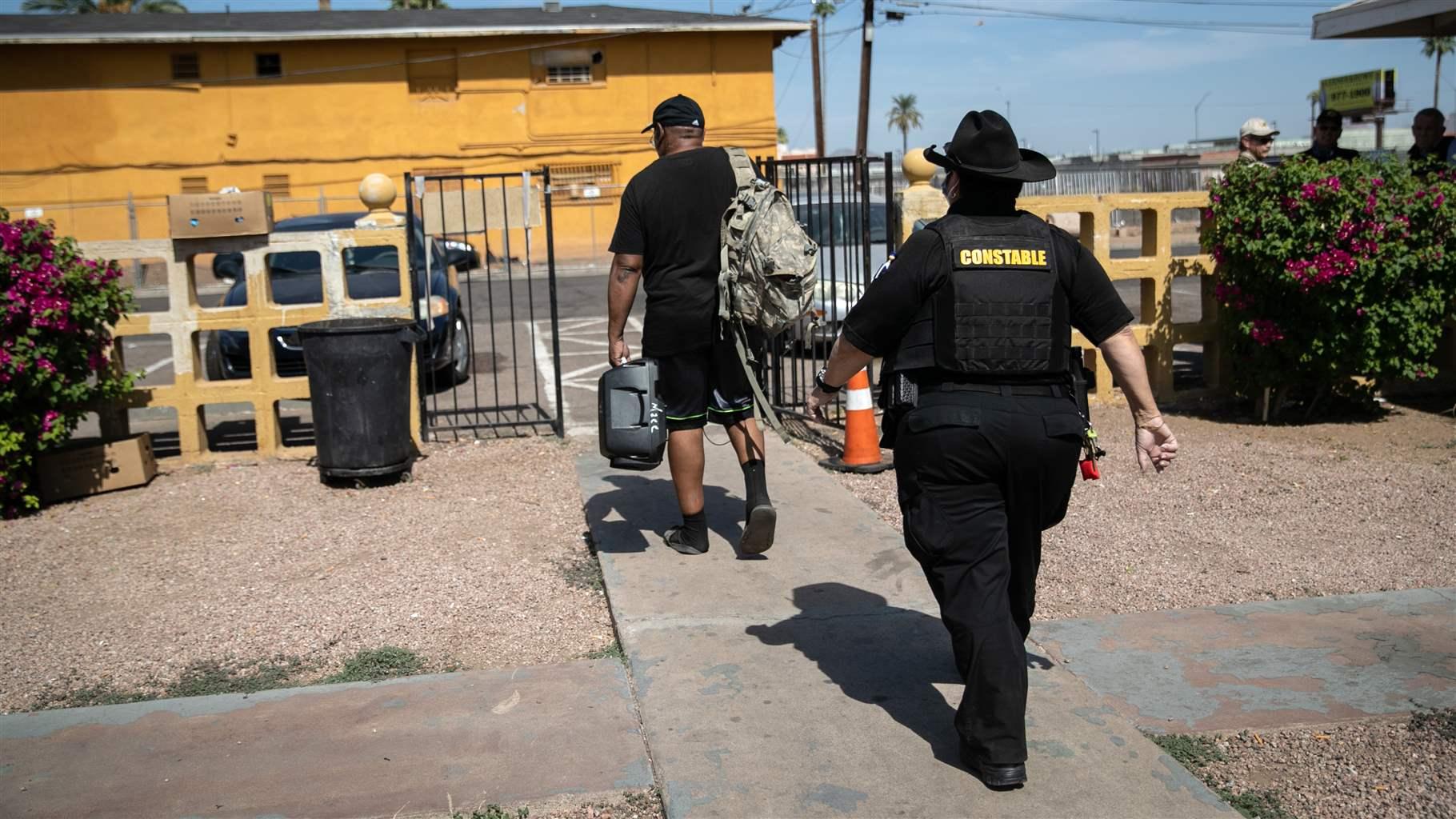National and State Efforts Continue to Prevent Pandemic-Related Evictions
Better data can help detail the impact of housing loss and highlight long-term solutions

With the Centers for Disease Control and Prevention’s (CDC’s) nationwide moratorium on evictions set to expire June 30, officials at all levels of government are seeking ways to prevent a deluge of displacements linked to pandemic-related economic disruptions. To confront the continuing financial challenges faced by so many Americans, policymakers need access to better housing court data to craft long-term approaches to keeping people in their rental housing during difficult times.
In his joint address to Congress on April 28 marking his first 100 days in office, President Joe Biden highlighted his administration’s rapid efforts to deliver rental assistance to people who have found themselves at risk of eviction because of the economic downturn caused by the rapid spread of COVID-19.
The previous month, on March 11, Biden signed the American Rescue Plan, which included emergency assistance for the millions who faced possible eviction during the public health emergency. Meanwhile, states issued their own temporary emergency orders to halt eviction filings, delay hearings, and stop enforcement of post-judgment orders compelling people to leave their homes.
Even with these federal and state protections in place, many renters have found themselves in housing court, in some cases because of challenges that they and their landlords have experienced when attempting to access federal rental assistance. And when eviction cases reach the courtroom, renters often struggle to remain in their homes.
One reason for that: Tenants have legal representation in courts only about 10% of the time, while landlords have lawyers 90% of the time. This disparity often means that tenants without lawyers are negotiating with legal professionals.
As the pandemic unfolded, tenants challenging eviction also have often had to navigate another new layer of process: virtual court proceedings. Although online court processes are intended to protect all parties from the health risks of meeting in person, they can inadvertently create additional obstacles. For example, renters with unreliable internet service reported difficulty accessing video hearings.
Legal experts have warned of a deluge of eviction filings once pandemic-related protections for renters expire, including the CDC moratorium. The case backlog is already growing. A March report by the Consumer Finance Protection Bureau found that 11 million households were “significantly overdue” on housing payments as of December 2020. In addition, Black and Hispanic households were more than twice as likely to report being behind on their payments due to economic hardship than White households.
States have tried creative approaches to address the compounding challenges of increasing evictions, remote proceedings, and administrative complexity in distributing rental assistance: Michigan implemented a statewide eviction diversion program, for example, that connects tenants with rental assistance, including some late fee forgiveness.
But a lack of reliable state court data means that states and the federal government do not know the full effects of these various measures on landlords or tenants. In Michigan, for example, there is currently no comprehensive way of determining how many evictions have been ordered since the start of the pandemic.
Identifying the rate of eviction case filings could inform CDC decisions related to the cessation or extension of the federal eviction moratorium. State policymakers could likewise benefit from a review and analysis of data to determine the impact of policies they have implemented.
Better data can ensure that federal, state, and local officials develop sound, evidence-based long-term policy solutions to limit evictions as the nation nears the end of the pandemic and beyond.
Erika Rickard is director and Qudsiya Naqui is an officer with The Pew Charitable Trusts’ civil legal system modernization project.











